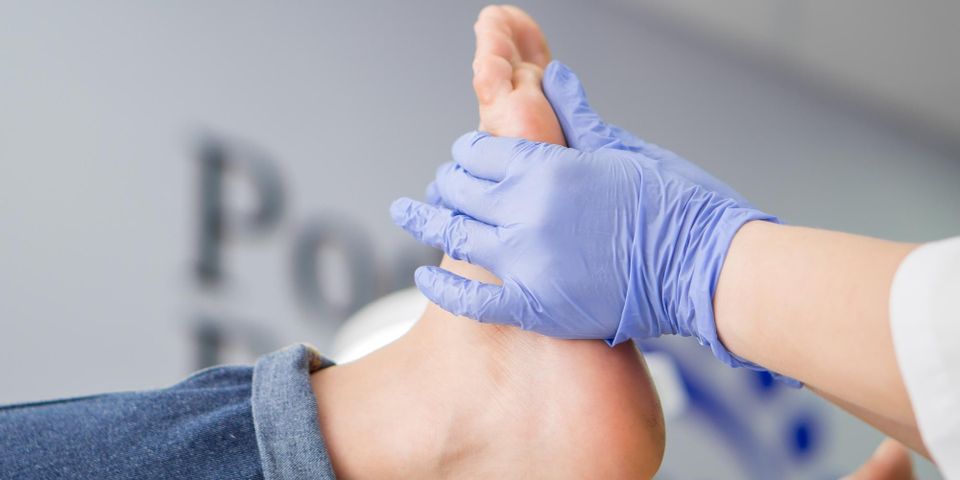
For patients with nerve damage and circulatory issues due to diabetes, foot care is a major concern. This is especially true in winter when weather conditions and changing daily routines and dress present specific challenges. For the best diabetic foot care in winter, pay attention to these areas.
Winter Foot Care Guide
1. Keep Your Feet Dry
Rain, slush, and snow soaking into your shoes is the start of a number of foot problems — even in healthy individuals. It can cause chafing and infections as well as making it harder to regulate temperature. Choose water-resistant footwear, stay out of puddles, and check frequently to see if your feet are wet.
2. Avoid Direct Heat
If your feet are wet or cold, resist the temptation to prop them up in front of a fire or heater. If you have suffered nerve damage, the risk is high that you will burn your feet and not be able to tell. Instead, dry off, and get your whole body someplace moderately warm.
3. Wear Good Shoes
A major part of responsible foot care is choosing shoes that fit correctly and don’t chafe or squeeze. Your podiatrist can put you in touch with custom shoe-making services for diabetes patients, but if that isn’t an option, just check the fit of your shoes regularly and watch for signs of rubbing.
4. Moisturize & Inspect
Cold, dry weather can lead to skin cracks, especially in the hands and feet. Moisturize your feet regularly to keep the skin pliable and avoid infections. This is a good opportunity to inspect your feet for any unnoticed injuries or signs of existing infection, and provide treatment as needed.
5. Trim Your Toenails
 Long toenails are a major source of foot injury. They can snag on objects and clothes, be bent back when you stub your toes, or can dig into the skin. Keep them trimmed short and keep the edges neat to minimize these issues.
Long toenails are a major source of foot injury. They can snag on objects and clothes, be bent back when you stub your toes, or can dig into the skin. Keep them trimmed short and keep the edges neat to minimize these issues.
If you have concerns about your foot care routine or an existing injury, visit Louise E. Tortora, DPM in Fairfield, CT. Serving Fairfield County, Dr. Tortora has 30 years of experience in everything from ingrown toenails to sports injuries and diabetic foot treatments, and they offer surgical services at Bridgeport Hospital. To schedule a visit, call (203) 254-0093 or send an appointment request online.
About the Business
Have a question? Ask the experts!
Send your question

